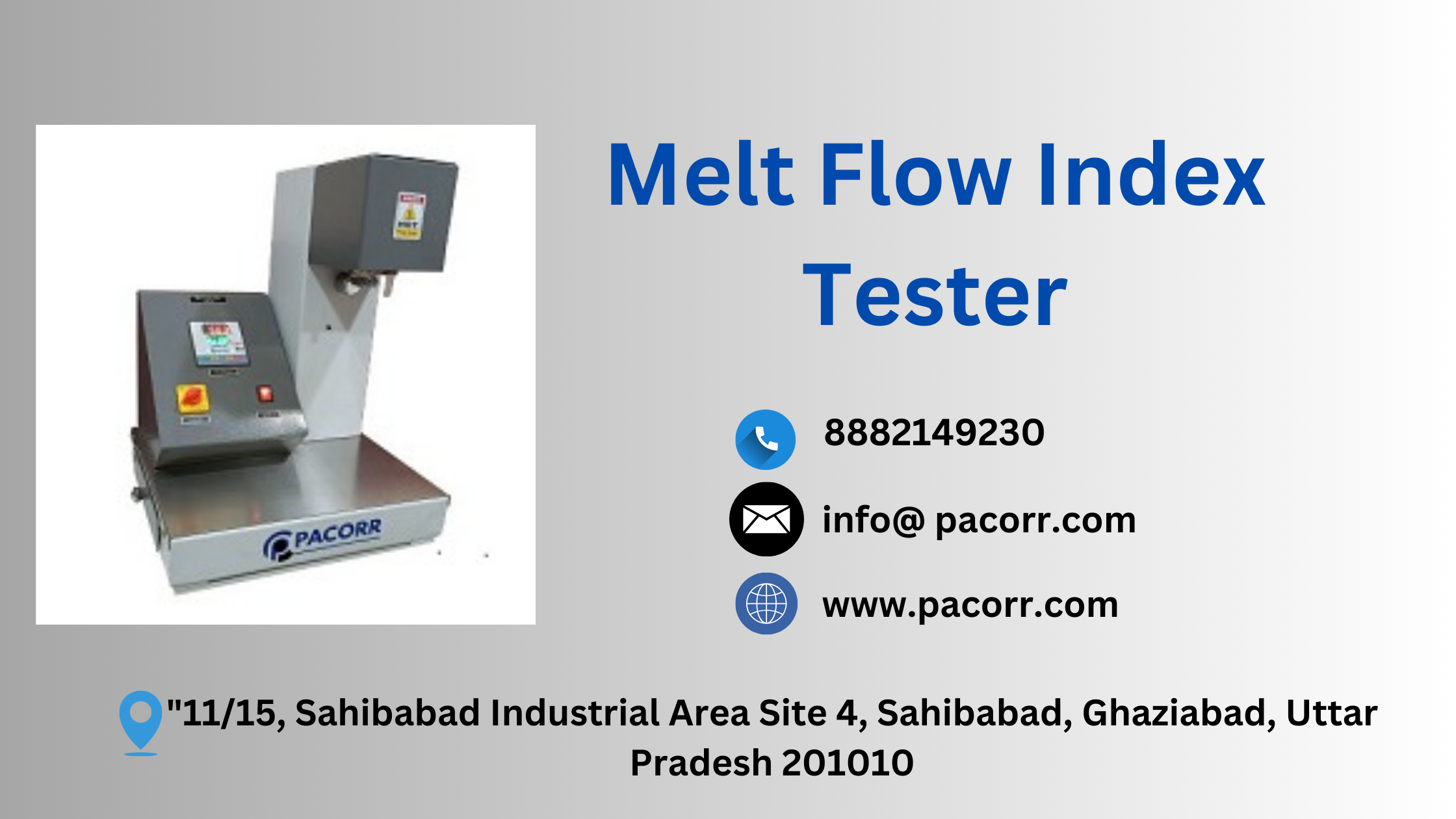Introduction
In the world of polymer testing, the Melt Flow Index (MFI) Tester is a crucial instrument used to determine the flow properties of plastic materials. This article will delve into the importance, functionality, and benefits of using a Melt Flow Index Tester in quality control and research and development.
Introduction to Melt Flow Index Tester
The Melt Flow Index Tester Price also known as the Melt Flow Rate (MFR) Tester, is an essential tool in the plastics industry. It measures the rate of extrusion of molten polymer through a die of specified length and diameter under a prescribed set of conditions. This measurement is known as the Melt Flow Index (MFI) and is a key indicator of the material's flow properties, which are critical for processing and end-use performance.
Importance of Melt Flow Index Testing
Quality Control
In manufacturing, consistency is paramount. The MFI test helps in ensuring that the plastic materials used in production meet the required standards. By regularly testing the melt flow rate, manufacturers can detect variations in material quality, ensuring uniformity in the final product.
Material Selection
For designers and engineers, selecting the right material for a specific application is crucial. The MFI provides valuable data on the viscosity and flow characteristics of different polymers, aiding in the selection of the most suitable material for specific processing methods, such as injection molding, extrusion, or blow molding.
Process Optimization
Understanding the flow properties of a polymer allows manufacturers to optimize processing conditions. By adjusting parameters such as temperature and pressure, manufacturers can achieve better control over the manufacturing process, leading to improved product quality and reduced waste.
How the Melt Flow Index Tester Works
Basic Principle
The basic principle behind the Melt Flow Teste involves heating the polymer sample until it melts and then extruding it through a die using a specified load. The amount of polymer extruded in a given time is measured and reported as the MFI, typically in grams per 10 minutes.
Components of the Melt Flow Index Tester
1. Heater: Maintains a constant temperature to melt the polymer.
2. Die: A cylindrical opening through which the molten polymer is extruded.
3. Piston: Applies pressure to the molten polymer.
4. Load Weights: Standard weights used to apply the specified force on the piston.
5. Timer: Measures the time taken for a specified amount of polymer to extrude.
Testing Procedure
1. Sample Preparation: The polymer sample is cut into small pieces and placed in the heating chamber.
2. Heating: The sample is heated to a specific temperature until it reaches a molten state.
3. Extrusion: A specified load is applied to the piston, forcing the molten polymer through the die.
4. Measurement: The extruded polymer is collected and weighed to determine the MFI.
Benefits of Using Melt Flow Index Tester
Accurate Measurement
The Melt Flow Index Tester provides accurate and repeatable measurements of polymer flow properties, ensuring reliable data for quality control and material selection.
Cost-Effective
By identifying material inconsistencies early in the production process, the MFI test helps in reducing waste and rework, leading to cost savings.
Versatility
The Melt Flow Index Testing can be used with a wide range of thermoplastic materials, making it a versatile tool for various industries, including automotive, packaging, and consumer goods.
Compliance with Standards
The MFI test is widely recognized and complies with international standards such as ASTM D1238 and ISO 1133, ensuring that the test results are universally accepted.
Applications of Melt Flow Index Tester
Automotive Industry
In the automotive industry, the MFI test is used to ensure that plastic components meet stringent quality standards. This is crucial for parts that require precise mechanical properties, such as dashboards, bumpers, and interior panels.
Packaging Industry
For the packaging industry, the MFI test helps in selecting the right materials for producing films, containers, and other packaging products. Consistent flow properties are essential for achieving uniform thickness and strength in packaging materials.
Consumer Goods
Manufacturers of consumer goods, such as toys, household items, and electronic enclosures, rely on the MFI test to ensure that their products are made from high-quality plastics that meet performance and safety standards.
Conclusion
The Melt Flow Index Tester is an indispensable tool in the plastics industry, providing valuable insights into the flow properties of polymers. By ensuring material consistency, aiding in material selection, and optimizing processing conditions, the MFI test plays a crucial role in maintaining quality and efficiency in manufacturing processes. Investing in a reliable Melt Flow Index Tester Price is essential for any organization striving to produce high-quality plastic products that meet industry standards.
Whether you are in the automotive, packaging, or consumer goods industry, understanding and utilizing the Melt Flow Index Teste can significantly enhance your production capabilities and product quality.

